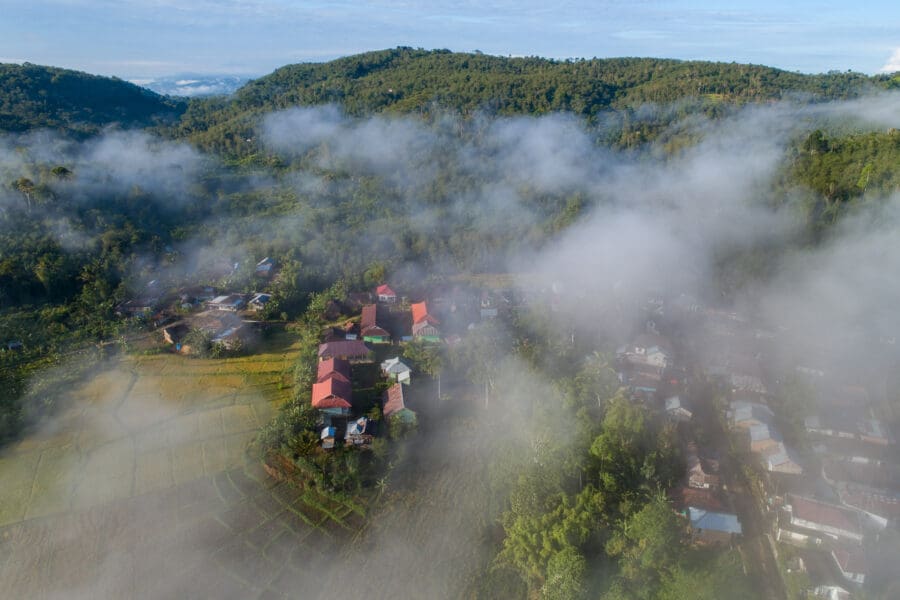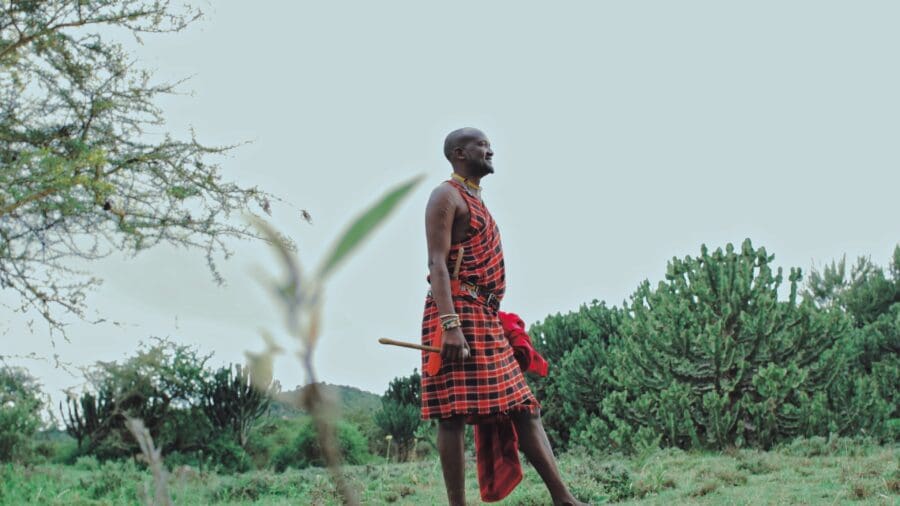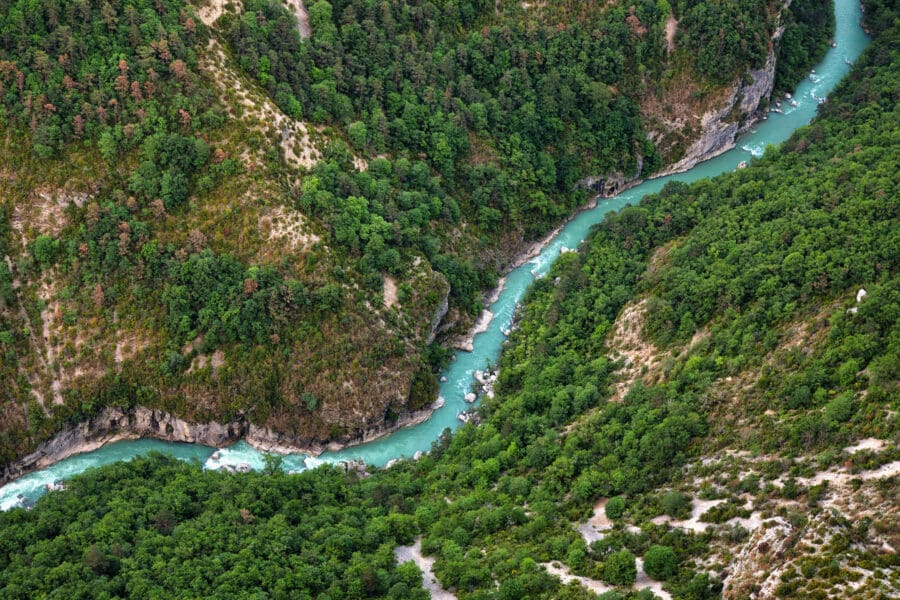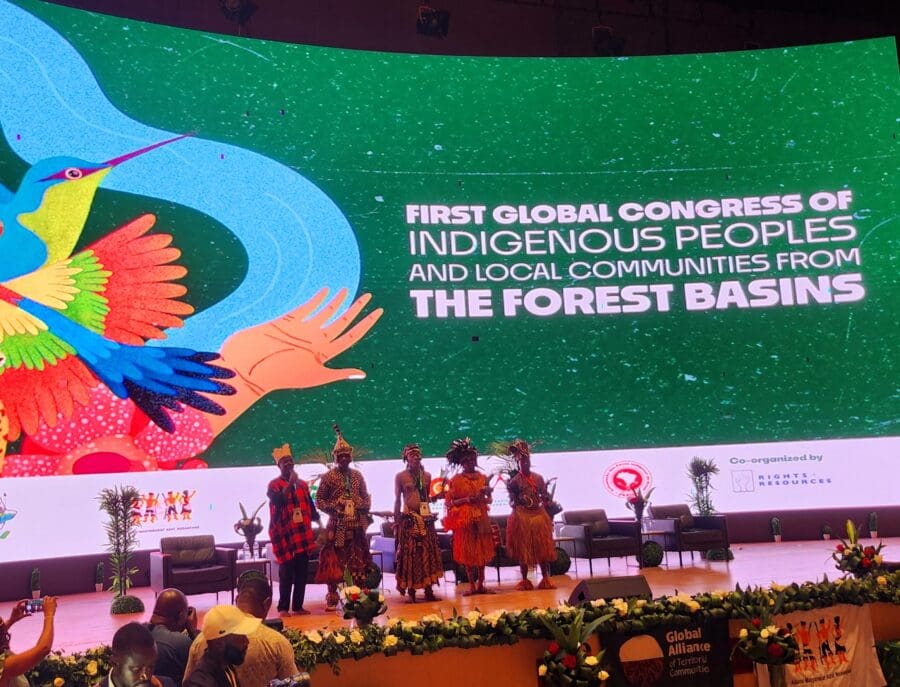WASHINGTON, D.C. (November 6, 2025) — As global leaders prepare to gather in Belém, Brazil, this November for the 30th UN Climate Conference (COP30), the Rights and Resources Initiative (RRI) and its global partners are calling for the summit to serve as a turning point for Indigenous Peoples, Afro-descendant Peoples, and local communities who safeguard the world’s forests and biodiversity.
In a pre-COP virtual press briefing on October 23, RRI brought together community leaders from Africa, Asia, and Latin America to outline their priorities for what many are calling the “Indigenous Peoples’ COP.” With over 1,000 accredited Indigenous representatives expected in the official Blue Zone, COP30 offers an unprecedented opportunity to align climate ambition with justice, inclusion, and shared power.
Below are on-the-record quotes from key spokespeople available to speak with journalists in the lead-up to and during COP30. These statements may be used with attribution.
“COP30 is an inflection point, a chance to move from acknowledgment to investment, and from inclusion to shared power.”
— Dr. Solange Bandiaky-Badji, President and Coordinator, Rights and Resources Initiative (RRI)
“Indigenous Peoples, Afro-descendant Peoples, and local communities collectively manage more than half of the world’s land, much of it vital forest and biodiversity territory, yet only 11% of this land is legally recognized. Without their leadership, the world cannot meet its climate, biodiversity, and sustainable development goals. COP30 must turn long-standing promises into action. Now that Indigenous- and local community-led funding mechanisms have been set up with proven success, communities’ capacity for impact is infinite.”
“Land rights are the strongest mitigation and climate solution we have, but they’re still missing from most national climate plans or NDCs.”
— Carla Cardenas, Director, Latin America Program, Rights and Resources Initiative (RRI)
“RRI’s research shows that only 40% of Nationally Determined Contributions (NDCs) even mention land or territorial rights as mitigation mechanisms. We’re urging governments to integrate the legal recognition of community land rights into their NDCs because where tenure is secure, forests thrive. In Latin America, Afro-descendant and Indigenous communities are proving that collective ownership is the foundation for conservation and resilience.”
“The Congo Basin plays a crucial role in maintaining global climate balance. Yet the communities working tirelessly to protect it often find themselves deprived of their fundamental rights.”
— Priscilia MONIREH, Member of REPALEAC (Network of Indigenous and Local Communities for Sustainable Management of Forest Ecosystems in Central Africa)
“Indigenous Peoples and local communities aspire to the same recognition they are granted in other parts of the world. The Brazzaville Declaration represents a collective call for the recognition of land rights, seen as an essential solution to the climate crisis. At COP30, we call on governments and donors to respond to this call. It is imperative that new climate finance be channeled directly to those who protect forests, rather than through intermediaries. We envision a fair and effective allocation of resources to ensure the sustainability of our ecosystems and the well-being of the communities that depend on them.”
“Youth leadership is not the future—it’s the present.”
— Sabba Maharjan, Indigenous Youth Representative, Nepal
“As Indigenous youth, we live the realities of climate change every day. RRI’s approach to support youth leadership and movement building gave us a platform to turn that experience into action. At COP30, we will launch the first Global Youth Roadmap, Youth Climate Justice Statement, and Global Youth Network uniting Afro-descendant, Indigenous, and local community youth from Asia, Africa, and Latin America. Our message is simple: listen to the youth, learn from the elders, and act for future generations.”
“Our voices must be heard in the Blue Zone, not just outside it.”
— Ginny Alba, Representative, OPIAC (National Organization of Indigenous Peoples of the Colombian Amazon)
“Indigenous leaders need full accreditation and participation in the formal negotiations, where real decisions are made. Our goal is to advance toward an Indigenous NDC, a mechanism to ensure Indigenous-led climate priorities are reflected in national commitments. This is about shaping policy, not being symbolic participants.”
“Over 200 million Afro-descendant People in Latin America are confronting climate impacts without recognition or rights.”
— Miguel Angel Pereira Guadalupe, Representative, CITAFRO (Coalition of Afro-descendant Communities of Latin America and the Caribbean)
“Afro-descendant Peoples must be recognized under the UN Framework Convention on Climate Change as collective rightsholders. We are over 200 million strong, with deep cultural and ecological connections to the land, from the rural periphery to the urban margins most affected by climate change. Recognition and inclusion are not optional; they are essential for justice.”





